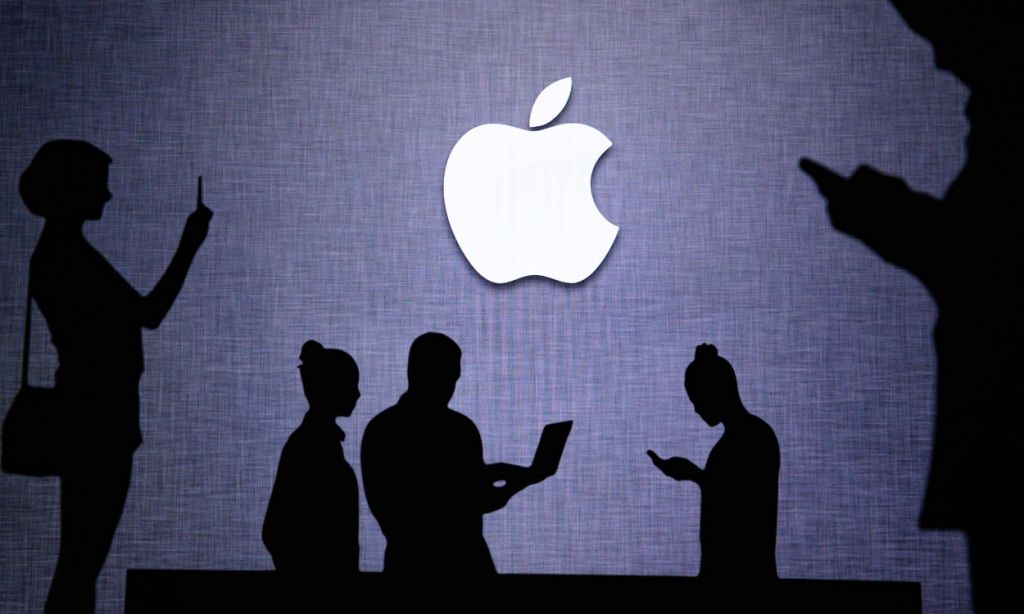
- An antitrust lawsuit has been filed against Apple by the DOJ and 16 district attorneys general regarding the iPhone ecosystem monopoly.
- The government alleges Apple's practices raise prices for consumers and make it harder for app creators to compete.
- Apple says it will “vigorously defend” itself against the lawsuit.
The US Department of Justice officially filed an antitrust lawsuit against Apple for the iPhone ecosystem monopoly. DOJ had been preparing for years to file this lawsuit, and it finally did it. Apple believes the lawsuit is wrong on the facts and the law, and the giant has raised its voice to “vigorously defend” itself against the claims.
The DOJ and 16 district attorneys general have filed the case in the US District Court of New Jersey. The case accuses Apple of raising prices for consumers and imposing higher fees on developers and creators at the expense of locking users into its ecosystem. There are allegations that Apple “selectively” imposes restrictions on developers and refuses to disclose critical ways of accessing the phone to crush down the competition.
You can read the full DOJ Lawsuit here.
“Apple exercises its monopoly power to extract more money from consumers, developers, content creators, artists, publishers, small businesses, and merchants, among others.”- DOJ
It further states that “Apple undermines apps, services, and products that would otherwise make users less reliant on the iPhone, promote interoperability, and lower costs for consumers and developers.” U.S. Attorney General Garland justifies the lawsuit saying Apple “will only continue to strengthen its smartphone monopoly” if left unchallenged.
“No matter how powerful, no matter how prominent, no matter how popular — no company is above the law”- Deputy Attorney General Lisa Monaco
The government points out that Apple’s anticompetitive course of conduct has taken several forms. In fact, many of them continue to evolve today, including:
- Limiting the innovation of “super apps” with broad functionality that would allow users to switch between different smartphone platforms.
- Blocking cloud-streaming apps that would, otherwise, allow users to enjoy high-quality video games and other cloud-based apps without the need for expensive hardware.
- Degrading the quality of messaging between the iPhone and other platforms so customers can keep buying iPhones.
- Restricting the functionality of third-party smartwatches with the iPhones so the user can’t switch from the iPhone due to compatibility issues.
- Preventing third-party developers from offering third-party digital wallets with tap-to-pay functionality for the iPhone.

Of course, Apple won’t accept the iPhone anti-trust allegations and is ready to challenge the DOJ in court. Apple has strongly defended its business practices, saying they aren’t doing anything illegal.
“At Apple, we innovate every day to make technology people love—designing products that work seamlessly together, protect people’s privacy and security, and create a magical experience for our users. This lawsuit threatens who we are and the principles that set Apple products apart in fiercely competitive markets. If successful, it would hinder our ability to create the kind of technology people expect from Apple—where hardware, software, and services intersect. It would also set a dangerous precedent, empowering government to take a heavy hand in designing people’s technology. We believe this lawsuit is wrong on the facts and the law, and we will vigorously defend against it.”- Apple
Well, this isn’t the first antitrust lawsuit that Apple has faced. That said, it’s one of the most comprehensive and ambitious to date. The giant has successfully defended itself against some previous legal actions such as the Epic Games lawsuit over App Store policies.
However, the current lawsuit targets the entire Apple Ecosystem, reflecting a more problematic challenge. It seems to be risky for the Apple’s walled-garden business model.
The Apple vs DOJ legal battle is expected to be complex and lengthy. If successful, the lawsuit would shake up the iPhone ecosystem, opening it to the competition and reducing control of iPhones.
We have already seen Apple introducing multiple changes to the European Union, to comply with DMA. For example, it allowed alternative app stores and third-party payment mechanisms. It also allowed iPhone users in the EU to uninstall Safari on iPhones. Now, we might see Apple doing the same in the United States to escape another lawsuit. Well, it seems Apple only understands the language of laws and lawsuits.